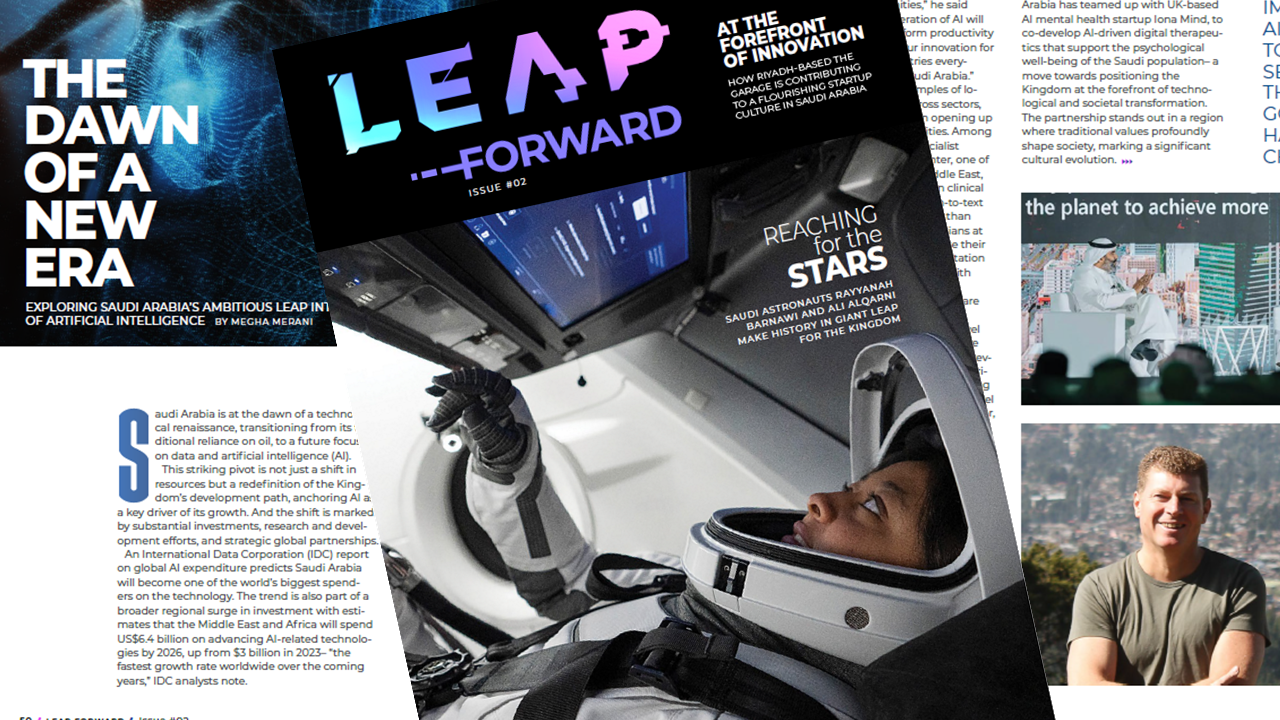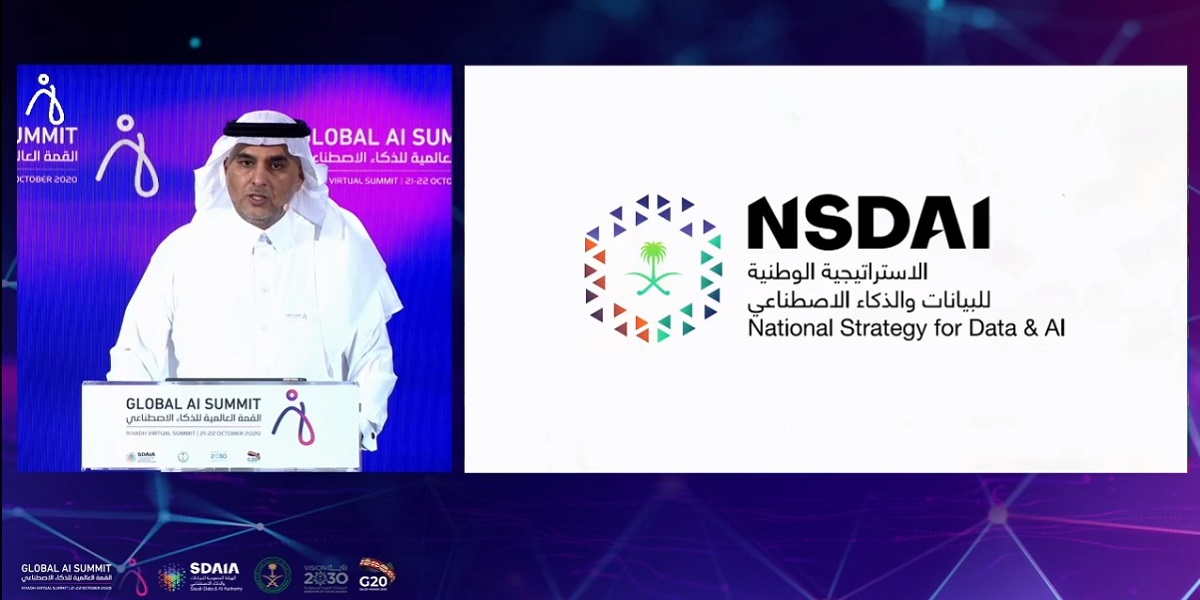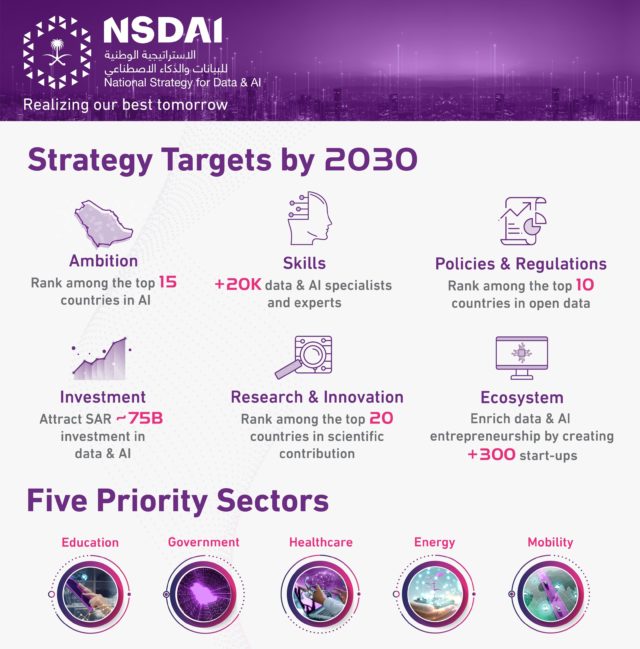Exploring Saudi Arabia’s ambitious leap into the domain of artificial intelligence
Saudi Arabia’s ambitious AI goals have raised eyebrows at times during the past few years. Some were just not prepared to believe that a country with virtually no AI development, few coders or data scientists, and a technology ecosystem that consisted mostly of sales, marketing and distribution could cut it as an AI hub, on any level.
Undeterred, the country has methodically implemented, improved and developed its National Strategy for Data and AI, investing strategically in digital transformation, upskilling digital talent, backing R&D and incentivising technology entrepreneurs and leading tech companies to come to Saudi Arabia. Just three years later it’s already apparent that the Kingdom is moving mountains to achieve its AI goals and now stands at the dawn of a new era.
I was proud to be asked to comment on Saudi Arabia’s meteoric progress in the official magazine for LEAP 2024, which took place this month.
Saudi Arabia intends to be a world leader in AI and obviously has the ability to use oil revenues to invest heavily where needed. So, the biggest immediate challenges are the right skilled talent and regulatory policy that impacts AI. The Kingdom has surprised doubters by moving fast and purposely to meet both of these challenges. The speed and scale of the education and training programmes introduced so far across the country as been breathtaking.
While many governments around the world have lagged in implementing AI compared to the private sector, the Saudi government has led the charge.
The early outcomes of Saudi Arabia’s strategy, commitment and investment were plain to see at this year’s LEAP event in Riyadh. Attended by tech luminaries such as IBM CEO Arvind Krishna, Amazon Web Services CEO Adam Selipsky, ServiceNow chairman and CEO Bill McDermott, Ericsson CEO Borje Ekholm and UiPath CEO Rob Enslin, the event saw more than $13 billion of new tech investments announced.
The government’s commitment to AI R&D, AI skills and AI adoption was clearly visible, illustrated by backing its Riyadh-based Generative AI startup accelerator with $1 billion. However, there was also proof of local AI development, with Saudi Aramco announcing a 250 billion parameter industrial grade large language model, while local tech firm Matad revealed an Arabic language LLM developed entirely in the Kingdom using Saudi data.
One of the most powerful takeaways from LEAP 2024 was a comment from Jonathan Ross, the Founder and CEO of AI chip developer Groq, trying to make sense of Saudi Arabia’s massive investment in digital infrastructure:
“We started Groq in Silicon Valley because there was opportunity, but AI runs on compute and as you deploy this compute [in Saudi Arabia] I think this could be the place where the opportunity is going forward.”
I can only agree!
You can read Megha Merani‘s ‘The dawn of a new era’ feature, quoting me in in LEAP Magazine here (PDF).




